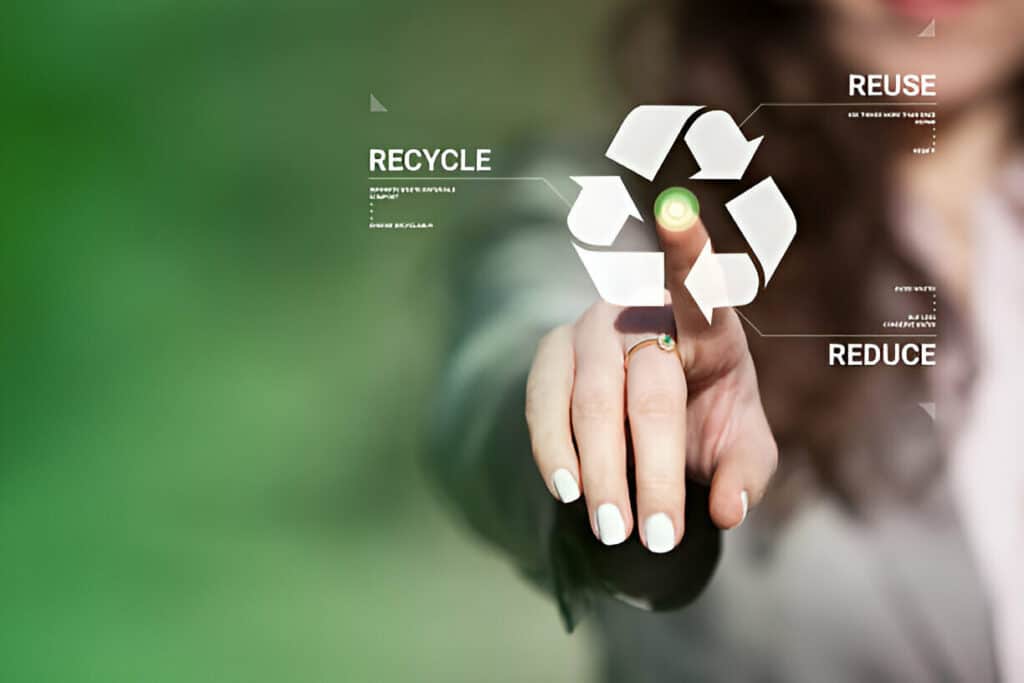Recycling has become increasingly important as we move away from harmful activities in an era of environmental problems and growing concerns about sustainability. Communities are suffering from the effects of excessive waste production, pollution, and resource depletion all over the world. A move toward recycling and sustainable practices, which can lessen environmental harm and open the door for a more resilient future, is possible despite these obstacles.
The concept of sustainability encompasses the responsible use of resources to meet present needs without compromising the ability of future generations to meet their own needs with electronic waste recycling in Dubai. At its core, sustainability emphasizes the interconnectedness of environmental, social, and economic factors, recognizing that actions taken today have far-reaching implications for the planet and its inhabitants. In this context, transitioning from polluting to recycling practices is not just a matter of environmental stewardship; it is a fundamental step toward building a more equitable and prosperous society.
Polluting practices, such as indiscriminate waste disposal, reliance on single-use plastics, and emissions from fossil fuel consumption, exact a heavy toll on the environment, human health, and biodiversity. From overflowing landfills and polluted waterways to air pollution and climate change, the consequences of these practices are stark and far-reaching. Moreover, marginalized communities and vulnerable populations often bear the brunt of environmental degradation, exacerbating existing inequalities and injustices.
You should also see:
In contrast, recycling offers a viable solution to mitigate the environmental impact of waste generation and resource depletion. By reusing materials, reducing the demand for virgin resources, and minimizing pollution, recycling plays a crucial role in conserving natural resources and reducing greenhouse gas emissions by electronic waste collection in Dubai.
Moreover, recycling promotes circular economy principles, wherein resources are kept in circulation for as long as possible, thereby minimizing waste and maximizing resource efficiency.
The benefits of recycling extend beyond environmental conservation; they also encompass economic and social dimensions. Recycling industries create jobs, stimulate local economies, and contribute to innovation and technological advancement. Moreover, recycling fosters community engagement and empowers individuals to take action towards a more sustainable future. By participating in recycling initiatives, individuals can contribute to collective efforts to address environmental challenges and promote positive social change.
To facilitate the transition from polluting to recycling practices, concerted action is needed at all levels of society – from individuals and communities to businesses, governments, and policymakers. Education and awareness-raising play a crucial role in fostering a culture of recycling and encouraging sustainable behaviors of IT Asset Disposal in UAE. By educating the public about the importance of recycling, the benefits of waste reduction, and the impact of consumer choices, we can empower individuals to make informed decisions and take proactive steps toward sustainability.
In addition to education, infrastructure, and policy support are essential for building a robust recycling ecosystem. Investments in waste management infrastructure, such as recycling facilities, collection systems, and composting programs, are needed to support the efficient sorting, processing, and recycling of materials. Furthermore, policies and regulations can incentivize recycling and create a conducive environment for sustainable practices. Measures such as extended producer responsibility, landfill bans, and incentives for recycling can help internalize the environmental costs of waste generation and promote a circular economy.
Businesses also have a critical role to play in driving the transition to recycling. By adopting sustainable practices, such as reducing waste, designing products for recyclability, and incorporating recycled materials into their supply chains, businesses can minimize their environmental footprint and enhance their reputation as responsible corporate citizens. Moreover, businesses can leverage their influence to advocate for policy changes, invest in research and development of recycling technologies, and collaborate with other stakeholders to advance sustainability goals of secure data destruction in UAE.
In Short Brief,
the transition from polluting to recycling practices is imperative for addressing environmental challenges, promoting sustainable development, and safeguarding the planet for future generations. By embracing recycling, we can reduce waste, conserve resources, mitigate pollution, and foster a more equitable and resilient society. However, achieving this transition requires collective action, commitment, and collaboration across sectors and stakeholders. Together, we can build a more sustainable future – one where recycling is not just a choice but a way of life with Ewaste Refining in UAE.

